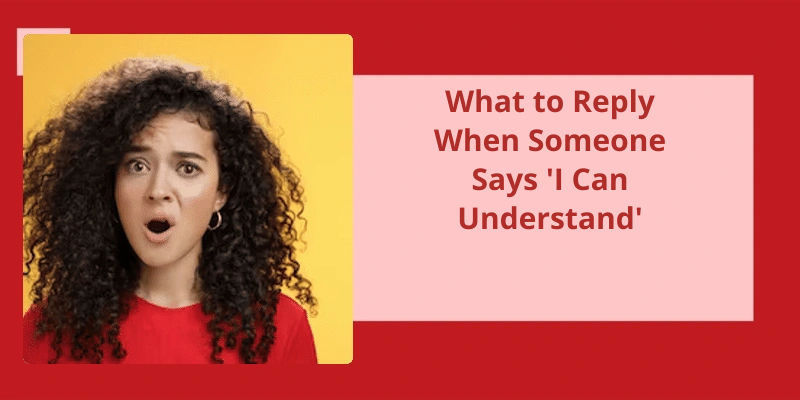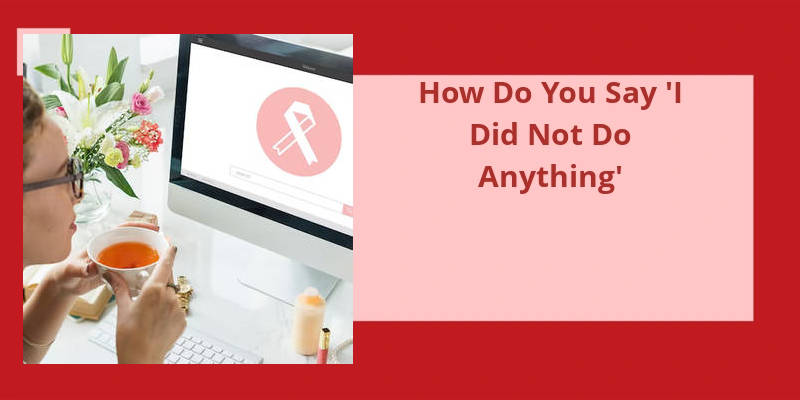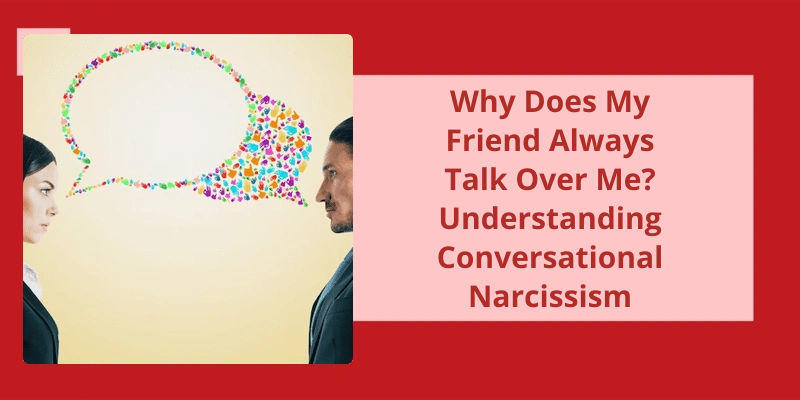Effective communication is an essential skill that can make or break any situation. Knowing how to respond appropriately can help prevent misunderstandings and conflicts. When we struggle to understand something or need clarification, it's important to acknowledge the other person's perspective and show empathy. Using simple phrases such as "OK" or "Alright" can show that we’re listening and help to diffuse tense situations. It's also important to express gratitude and respect for the other person's opinion, even if we don't necessarily agree. By doing so, we can foster positive relationships and create a more harmonious environment for everyone involved.
Why Shouldn T You Say I Understand?
Furthermore, when we say “I understand,” we’re also assuming that we share the same experience as the other person. But this is simply not possible in most cases. Each individual has their own unique background, perspectives, and feelings. Our experiences may overlap to a certain extent, but we can never truly understand exactly how someone else feels or what they’re going through.
Moreover, saying “I understand” can also come across as dismissive or trivializing. Even if we genuinely believe that we understand, the other person may not feel the same way. They may feel like we aren’t really hearing them or that we aren’t taking their situation seriously. This can create a sense of distance and alienation, which is the opposite of what we want to achieve in any conversation.
Another reason why we should avoid saying “I understand” is that it can shut down further conversation. When we make a statement like this, we’re essentially saying that we’ve nothing more to add to the discussion. This can be particularly problematic in a customer service context, where we want to keep the conversation going in order to gather more information and provide the best possible solution.
There are better ways to show empathy and understanding without resorting to the phrase “I understand.”. We can use active listening techniques like paraphrasing and reflecting back what the other person is saying. We can also ask open-ended questions that encourage the other person to share more about their thoughts and feelings. By doing so, we’re demonstrating that we’re truly interested in what they’ve to say and that we want to help them in any way we can.
It can be perceived as arrogant, dismissive, and even alienating. Instead, we should strive to listen actively and ask open-ended questions in order to show empathy and understanding. By doing so, we can build stronger relationships with our colleagues, customers, and loved ones.
The Importance of Active Listening in Communication and Relationships.
Active listening is a crucial aspect of effective communication and building strong relationships with others. It involves fully concentrating on what the speaker is saying without interrupting or making judgments. By actively listening, you can gain a deeper understanding of the speaker’s perspective and feelings, leading to better communication and fewer misunderstandings. It also shows respect and empathy towards the person speaking, improving the overall quality of the relationship.
Communication is an essential tool for a healthy relationship, whether it’s personal or professional. One of the common phrases that we use in our daily conversations is “I understand.” However, there are some debates about it’s politeness and formality. In this article, we’ll explore the meaning and context of the phrase and what alternatives are available if you don’t want to use it.
Is It Polite to Say I Understand?
Saying “I understand” is a sign of respect and attentiveness. When someone is trying to convey information to you, the polite response is to acknowledge their effort and show that you hear what they’re saying.
When two people are speaking, it’s important to ensure that they’re on the same page. This can be especially important in settings such as business meetings or negotiations, where efficient communication is essential.
It helps to foster a positive and respectful relationship between the two parties.
It demonstrates respect, diffuses conflict, enables clear communication, builds rapport, and concludes discussions. It may be formal, but it’s always appropriate and appreciated in any context.
Effective communication involves active listening, but true understanding requires more than just hearing the words. It requires empathy, putting yourself in the other person’s shoes, and considering their perspective. When we say “I understand,” we acknowledge not only what’s been said, but the emotions and experiences behind it. It takes practice to truly understand others, but it’s an essential skill in both personal and professional relationships.
What Does It Mean When I Say I Understand?
Understanding goes beyond just comprehending what the words mean. It requires empathy, active listening, and a willingness to put oneself in the speakers shoes to truly grasp their perspective. This involves acknowledging and recognizing their emotions, experiences, and beliefs without judgement or bias. When someone says, “I understand,” they’re indicating that they’ve made an effort to connect with the speaker and their message on a deeper level.
However, it’s worth noting that understanding doesn’t necessarily imply agreement. It’s possible to comprehend someones perspective and still disagree with them. In fact, having a different opinion can often lead to a more meaningful and productive conversation, as it encourages the exchange of ideas and perspectives. When we say, “I understand,” we aren’t simply trying to pacify the speaker or avoid conflict; rather, we’re demonstrating that we value and respect their perspective.
Of course, understanding isn’t always easy. It can be challenging to put aside our own biases and preconceptions, especially when we strongly believe in something ourselves. Moreover, some people may be more difficult to understand than others, particularly if they’ve vastly different backgrounds or life experiences. In these cases, it may be helpful to ask questions and seek clarification, rather than assuming we already know what the person is trying to say.
Strategies to Overcome Biases and Preconceptions When Seeking to Understand Others
- Practice active listening
- Engage in open-minded discussions
- Expose yourself to diverse perspectives
- Identify and challenge your own biases
- Empathize with others’ experiences
- Recognize the influence of stereotypes and preconceptions
- Ask questions to clarify your understanding
- Be willing to admit when you’re wrong
- Seek out feedback from diverse sources
Conclusion
In conclusion, responding to someone when they express that they can understand your point can seem like a small gesture, but it can play a significant role in effective communication. It indicates that you’ve been heard and understood, and demonstrates your willingness to engage in a dialogue rather than simply talking at someone. While there are many different ways to convey understanding and agreement, it’s important to choose one that feels authentic to you and fits the context of the conversation. By showing respect and acknowledgement towards others, you can cultivate stronger relationships and build a foundation of mutual trust and respect.






